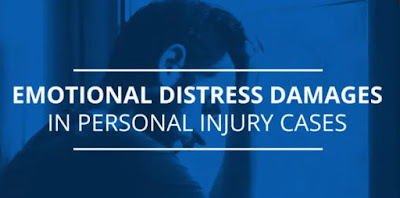Every person suffers from a car accident differently. There are two main categories of damages that represent your suffering. There are economic damages, which are pretty easy to measure and prove. For example, medical expenses are economic damages.
Then, there are non-economic damages that are representative of pain and suffering you endure because of your accident and injuries.
These are more challenging to prove, and the following are some of the important things to know about non-economic damages.
The Basics of Non-Economic Damages
Personal injury is a legal term that references injury to not just your body but also your emotions and your mental health. Personal injury awards, as was touched on, can include economic and non-economic damages.
Economic damages are objectively measurable and verifiable.
Non-economic damages are subjective because they aren’t monetary losses.
Non-economic damages can be awarded if someone experienced a loss because of not just a car accident but also inadequate health care. There are limitations and caps on non-economic damages to try and avoid having them become excessive.
Specific examples of non-economic damages might include:
• Emotional distress
• Pain and suffering
• Loss of enjoyment of life
• Loss of companionship
• Disability
• Disfigurement
• Reputational loss
How Are Non-Economic Damages Calculated?
The way in which non-economic damages are calculated and applied depends quite a bit on the state where your accident occurred.
For example, in some states, you can only claim non-economic damages based on provable economic damages.
In these cases, the damages are calculated based on a formula that puts them in proportion to the economic damages with a cap.
There are also federal limits on non-economic damages, in addition to state limits.
The federal law stipulates that non-economic damages have to be reasonable. They can’t be significantly higher compared to what’s awarded for economic damages.
Non-economic damages are often capped at no more than 10 times the economic damages amount.
Valuing Economic vs. Non-Economic Damages
With the above in mind, when it comes to valuing economic damages, it’s the total of your financial losses. Evidence used to value economic losses can include invoices, receipts, and bills as well as different records of medical treatment you received.
You might also be able to receive compensation for the future loss that you could incur because of loss of income or ongoing medical costs.
If you have an attorney and they think they need to account for future losses, they may work with different financial and medical experts.
So how are non-economic damages valued?
There isn’t a standard formula.
Some insurance companies, as well as juries, will use a multiplier.
That means a number, typically between 1.5 and 5, if assigned to a claim. The number assigned is based on different factors, and primarily the severity of injuries.
Then, the total of the financial losses is multiplied by that number to reach a figure for pain and suffering.
There’s also a calculation method based on per diems.
A per diem is the daily amount that someone is awarded for pain and suffering.
It is multiplied by how many days there are between the date of an accident and the date a doctor says the patient is released from care.
While it’s more difficult to show evidence for non-economic damages, there are some things that can be used to determine these damages.
For example, your medical records are important, including your doctor’s notes. You might also show your time off work, and expert testimony can be part of figuring out your non-economic damages.
Additionally, testimony from the people who know you best can be used as evidence.
Do You Need Counseling In Order To Recover Non-Economic Damages?
If you are dealing with the mental and emotional fallout of an accident and your subsequent injuries, you might seek counseling. This is very common. Accidents, particularly when they lead to injuries, can cause symptoms of depression, anxiety, and PTSD. They can lead to phobias.
You may also have trauma because your injuries could change your life.
For those reasons, counseling can be beneficial.
With that being said, you don’t necessarily have to go to counseling to recover non-economic damages, but if you do receive mental health care, it can be evidence you can show as part of the calculation.
Non-economic damages are a bit tricky to figure out unless you’re working with an experienced attorney. If you’ve been in an accident, it’s a good idea to at least have a consultation and they can go over your specific case in detail with you.
Other resources

